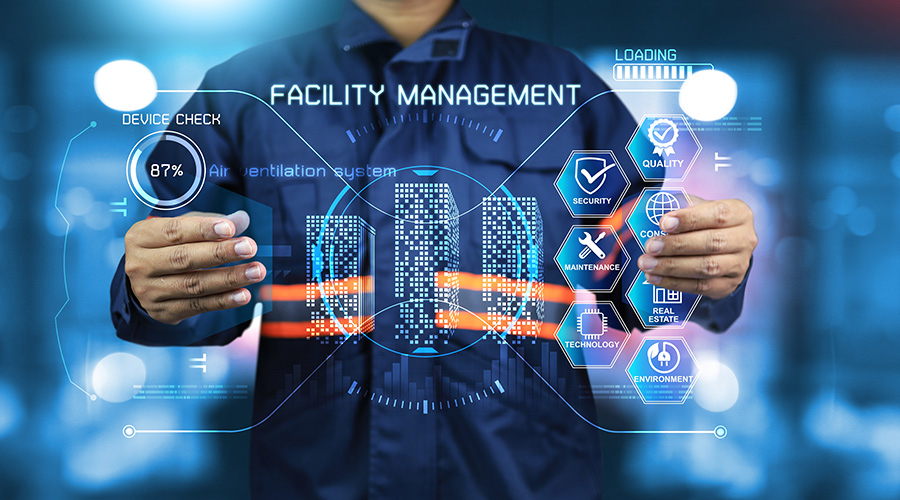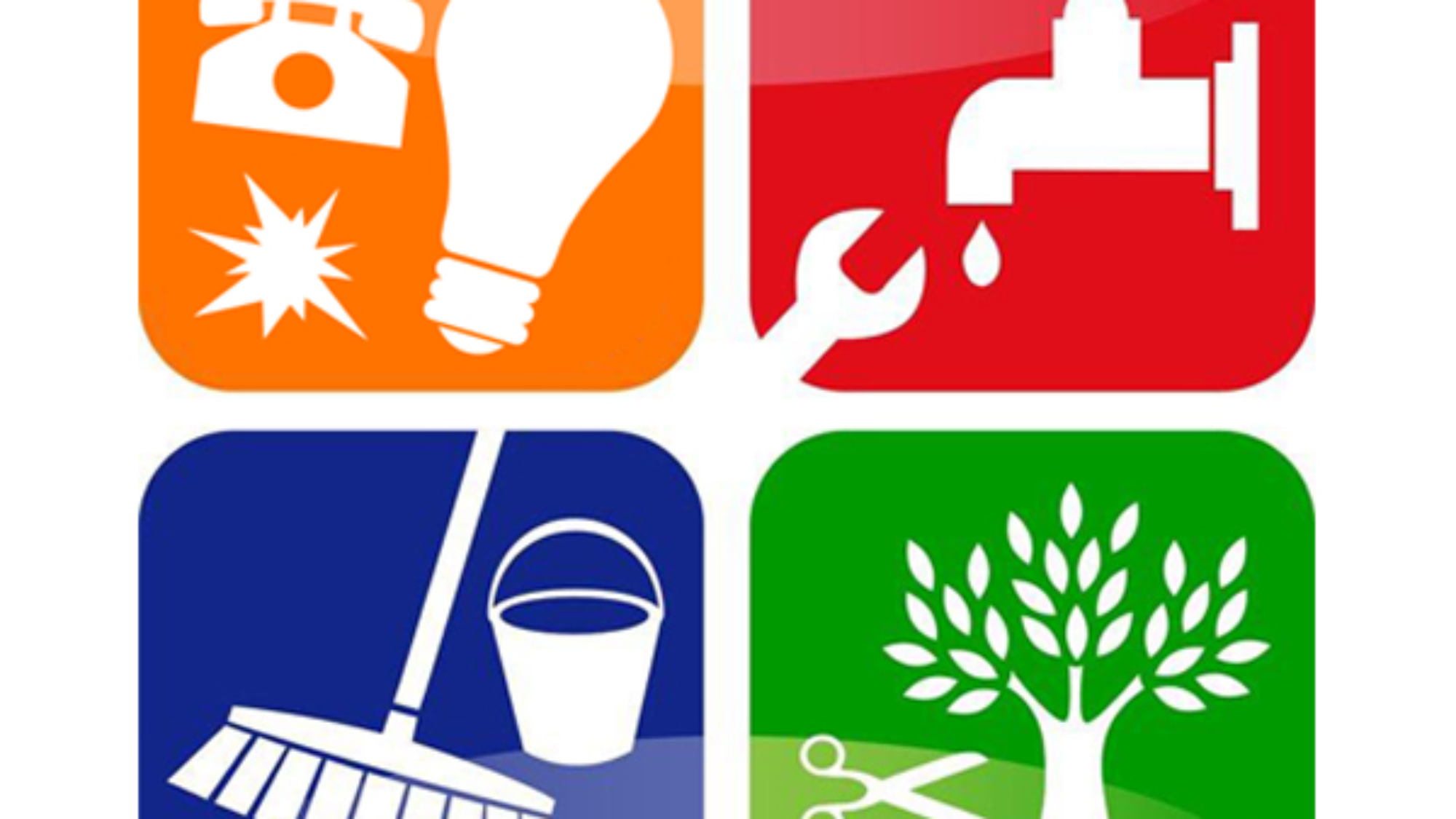Facility Management Solutions-- Ensuring Security and Maintenance
Facility Management Solutions-- Ensuring Security and Maintenance
Blog Article
Key Patterns Forming the Future of Center Management in 2024
As we look ahead to 2024, the landscape of facility administration is poised for significant change, driven by a number of vital trends. The combination of wise building modern technologies and a change towards data-driven decision-making assurance to improve functional efficiency while prioritizing sustainability in method.
Smart Structure Technologies

Smart building modern technologies incorporate a wide range of systems, including intelligent illumination, cooling and heating controls, and protection systems. By integrating these systems, facility supervisors can check and readjust specifications in real-time, leading to substantial decreases in energy waste and functional expenses. For example, smart sensing units can detect occupancy degrees and change lights and temperature appropriately, ensuring that power is only utilized when required.
Additionally, these innovations help with improved data collection, permitting organizations to track usage patterns and recognize chances for more renovations. The execution of clever structure technologies not just adds to sustainability objectives yet likewise develops healthier job environments that can improve staff member productivity and fulfillment.
As we move into 2024, the fostering of wise structure innovations will likely increase, showing a broader shift towards even more smart, receptive, and lasting facility monitoring techniques.
Data-Driven Choice Making
Progressively, organizations are leveraging data-driven decision making to boost facility monitoring methods. By utilizing information analytics, center supervisors can obtain actionable insights that significantly enhance operational performance and source allocation. The integration of sophisticated technologies, such as IoT sensors and real-time monitoring systems, makes it possible for the collection of huge quantities of information on structure performance, occupancy prices, and energy intake.
This riches of information allows center managers to determine patterns, predict upkeep demands, and proactively address issues before they intensify. For instance, anticipating analytics can anticipate tools failings, reducing downtime and repair work expenses. Furthermore, data visualization tools promote better communication amongst stakeholders, making sure that informed decisions are made collaboratively.
Furthermore, data-driven strategies enhance strategic preparation by enabling facility managers to assess the efficiency of current techniques and make educated choices pertaining to financial investments in innovation or infrastructure. As companies progressively focus on functional excellence, data-driven decision making is positioned to end up being a cornerstone of successful center administration techniques in 2024 and beyond. Eventually, the ability to leverage information effectively will encourage organizations to create more reliable, effective, and resistant facilities.
Sustainability and Environment-friendly Practices
The emphasis on data-driven choice making naturally aligns with the expanding concentrate on sustainability and environment-friendly practices within center management. As companies significantly prioritize ecological responsibility, facility managers are leveraging analytics to optimize source use, reduce waste, and reduce carbon footprints. This critical technique allows the assimilation of energy-efficient systems, such as LED lights, clever cooling and heating controls, and eco-friendly power sources right into center operations.
In addition, the execution of sustainable techniques prolongs past power intake. Center managers are promoting and embracing environment-friendly products reusing initiatives to develop a round economic climate within their centers. This not just enhances the ecological profile of the company but likewise fosters a society of sustainability among workers.
Conformity with environmental policies is one more essential aspect driving the adoption of environment-friendly methods. By utilizing information analytics, facility managers can monitor conformity metrics and identify areas for enhancement, ensuring adherence to regional and international sustainability criteria.
Hybrid Job Models
A substantial change towards hybrid job models is reshaping the landscape of facility management in 2024. This standard integrates in-office and remote job, necessitating a reevaluation of area use, resource allotment, and worker involvement techniques. Organizations are increasingly recognizing the importance of adaptable offices that deal with varied requirements and preferences.
Center managers need to adapt by executing flexible office styles that sustain collective efforts while supplying locations for focused work. This consists of the combination of modern technology to help with smooth interaction and partnership among remote and in-office workers. Smart building services, furnished with sensing units and analytics, enable real-time tracking of room usage, allowing organizations to maximize learn the facts here now their atmospheres efficiently.
In addition, hybrid work designs stress the need for reliable facility administration that focuses on employee experience. This encompasses not only modern technology and space design yet also the growth of policies that advertise a well balanced work-life dynamic. As business browse this change, the duty of center management ends up being essential in developing an agile workplace that fosters productivity and drives business success. Basically, the hybrid work model is reinventing facility administration, encouraging a positive technique to fulfill the advancing needs of the labor force.
Enhanced Occupant Health
As companies welcome hybrid work versions, an increased concentrate on occupant health is coming to be important to center monitoring methods. Facility Management. This shift recognizes that a completely satisfied and healthy workforce directly impacts productivity and retention rates. Facility supervisors are now focusing on settings that promote physical and psychological wellness, integrating elements such as natural lights, biophilic layout, and accessible wellness sources

Technology plays an essential function in this evolution. Smart structure systems can check environmental aspects and readjust setups in real-time, ensuring ideal comfort degrees - Facility Management. In addition, responses mechanisms, such as occupancy sensing units and worker surveys, enable facility supervisors to continuously refine wellness initiatives based upon occupant requirements.

Conclusion
In 2024, the future of center management will be substantially influenced by the combination of clever structure technologies and data-driven decision-making, fostering improved functional performance. These patterns jointly underscore the developing landscape of center administration in feedback to contemporary difficulties and opportunities.
Facility managers are promoting and embracing green products recycling campaigns to develop a circular economic climate within their centers.A substantial change towards crossbreed work versions is reshaping the landscape of center monitoring in 2024.In addition, hybrid work models stress the need for efficient center monitoring that prioritizes employee experience.As companies welcome hybrid job models, a heightened focus on occupant wellness is ending up being essential to center administration approaches.In 2024, the future of facility management will be dramatically look these up affected by the assimilation of wise structure modern technologies and data-driven decision-making, cultivating boosted operational effectiveness.
Report this page